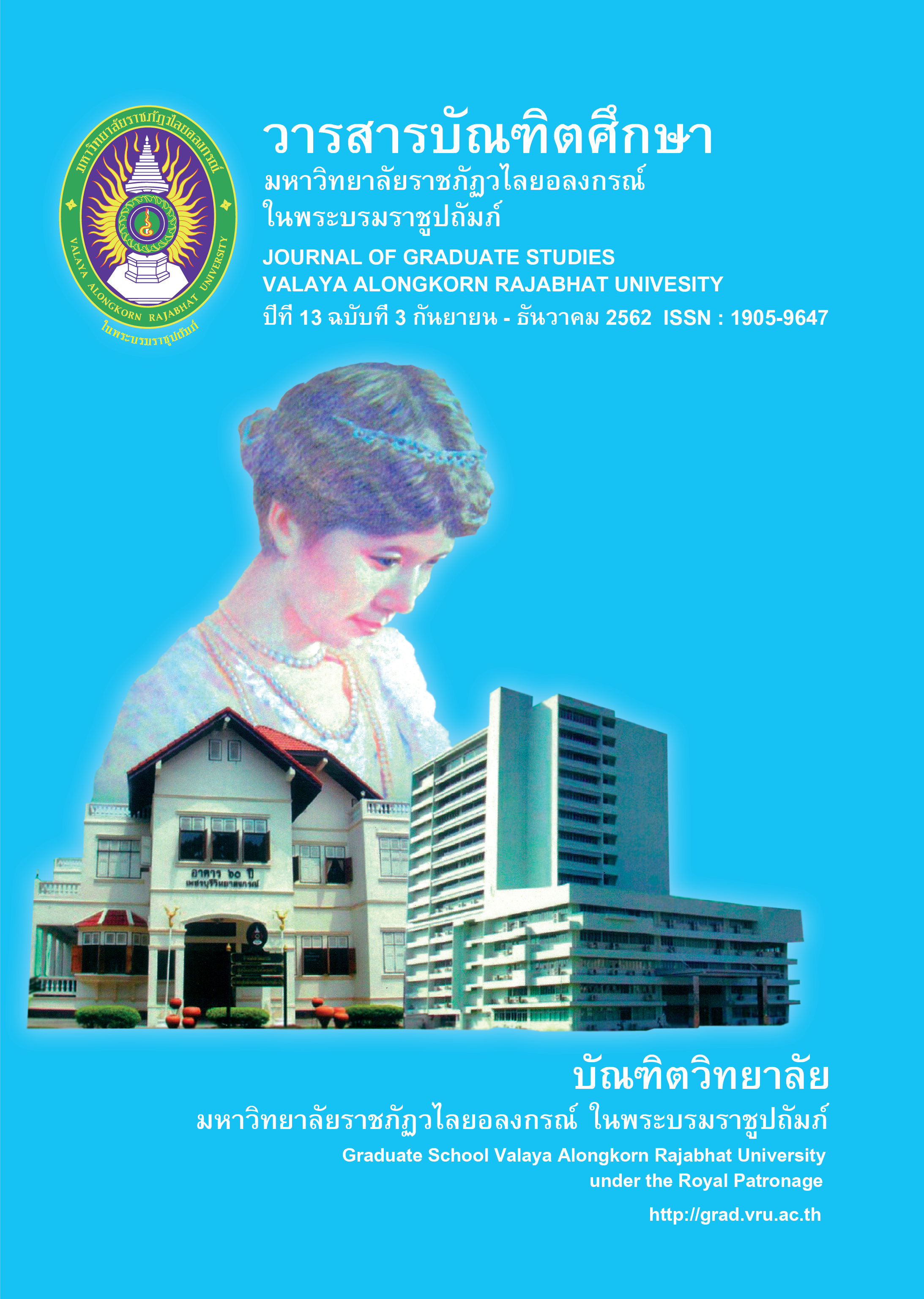GUIDELINE FOR MALE TEACHERS IN EARLY CHILDHOOD EDUCATION
Main Article Content
Abstract
Early childhood teachers play an important role in parenting and provide learning that promote children development and age appropriate learning. This will lead to the desired feature. Early childhood learning should focus on the differences in gender roles both behavior and personality. The value of society is often judged that "Early childhood education is the work of women”. This causes the lacks of male teachers in early childhood education. In fact, early childhood teachers both men and women have different strengths and learning approaches through a variety of teaching methods. It also shows that male teachers play an important role in providing learning experience for children which has no difference from female teachers. It also plays an important role in communicating with the fathers of early childhood in order to promote learning development. Therefore, this will lead to guideline for male teachers in providing learning which focus on distinctive and masculinity features. Male teachers should be able to be good role models for both male and female children. They also are able to take good care of children by considering the exceptions gently. And to be able to have good relationship with children’s families respectfully in order to providing effective learning experiences, acceptance, recognition, and promotion of male teachers in the early childhood education society.
Article Details

This work is licensed under a Creative Commons Attribution-NonCommercial-NoDerivatives 4.0 International License.
บทความทุกเรื่องได้รับการตรวจความถูกต้องทางวิชาการโดยผู้ทรงคุณวุฒิ ทรรศนะและข้อคิดเห็นในบทความ Journal of Global of Perspectives in Humanities and Social Sciences (J-GPHSS) มิใช่เป็นทรรศนะและความคิดของผู้จัดทำจึงมิใช่ความรับผิดชอบของบัณฑิตวิทยาลัย มหาวิทยาลัยราชภัฏวไลยอลงกรณ์ ในพระบรมราชูปถัมภ์ กองบรรณาธิการไม่สงวนสิทธิ์การคัดลอก แต่ให้อ้างอิงแหล่งที่มา
References
Bricheno, P. & Thornton, M. (2007). Role Model, Hero or Champion? Children’s Views Concerning Role Models. Educational Research 49: 383 - 396.
Cameron, C., Moss P., & Owen, C. (1999). Men in the Early Childhood Nursery: Gender and Caring Work. London: Paul Chapman.
Chuto, N., et al. (1995). kānpramœ̄n nangsư̄ rīan læ nangsư̄ ʻān prakō̜p kān rīan chœ̄ng thāithō̜t khāniyom kīeokap botbāt chāi ying [Assessment of textbooks and reading books for transferring values about male and female roles]. Bangkok: Committee for Promotion and Coordination.
D’Arcy, C. (2004). Males Studying And Working in Early Childhood Education: Advantages, Barriers, Challenges and Examples of Successful Strategies to Recruit, Retain and Support Men. Engaging Fathers Project, (Newcastle,) University of Newcastle.
Jones, J. (2009). "Men in Early Childhood Education." New Zealand Journal of Teachers’ Work 6: 28-34.
Ministry of Education. (2014). čhamnūan khārātchakān khrū pathommawai nai sathān sưksā čhamnǣk tām phēt [Number of early childhood teachers in schools classified by sex]. (Documents not published).
Ministry of Education. (2017). khūmư̄ laksūt kānsưksā pathommawai Phutthasakkarāt sō̜ngphanhārō̜ihoksip [Handbook for early childhood curriculum B.E. 2560 (For children 3-6 years)]. Document for meeting to build understanding of early childhood curriculum.
Moorhouse, P. (2018). Men in Early Years Education. Retrieved from https://irresistible-learning.co.uk
Morrison, A. (2014). Statistics on Men in Early Childhood Education. Retrieved from http://www.childforum.com/men-in-ece/nz- research-apolicymen/1170-statistics-on-men-in-nz-early-childhood education2013.html
Morrison, G. S. (2014). Fundamentals of Early Childhood Education (7th Ed). Upper Saddle River, New Jersey: Pearson Education, Inc.
National Childcare Accreditation Council. (2010). The Value of Male Role Model in Child Care. Early Years Magazine Issue 1: 6-7.
Pantuworakul, K. (2014). kān wikhro̜ khwāmkhithen khō̜ng phūpokkhrō̜ng læ khrū ʻanubān kīeokap botbāt khrū chāi læ khrū ying nai kānčhatkān sưksā pathommawai [An analysis of parents' and teachers' opinions concerning male and female teachers' roles in early childhood education]. Master’s Thesis. Early Childhood Education Program, Faculty of Education, Chulalongkorn University.
Perry, D. G., & Bussey, K. (1984). Social Development. Englewood Cliffs, NJ: Prentice-Hall.
Shaham, D. (1991). Male Teachers in Early Childhood Education: Self & Social Perceptions. Master’s Thesis, Bank Street College of Education.
Sidhisamarn, S. (2013). pǣt botbāt khō̜ng phō̜ thī tō̜ng song tō̜ hai lūk chāi. [8 fathers’ roles that must be passed on to their son]. Retrieved from http://www.manager.co.th/Family/ViewNews.aspx?NewsID= 9550000146864
Taguma, M., Litjens, I., & Makowiecki, K. (2012). Quality matters in early childhood education and care. Japan: OECD Publishing. Retrieved from http://www.oecd-ilibrary.org/education/ quality-matters-in-earlychildhood-and-education_22269673
Wardle, F. (2003). Introduction to Early Childhood Education: A Multidimensional Approach to Child-Centered Care and Learning. Boston: Allyn and Bacon.


